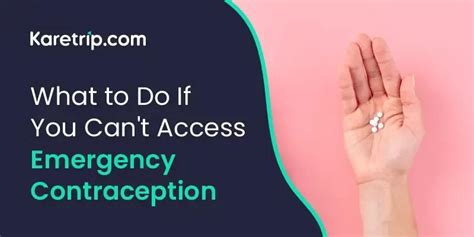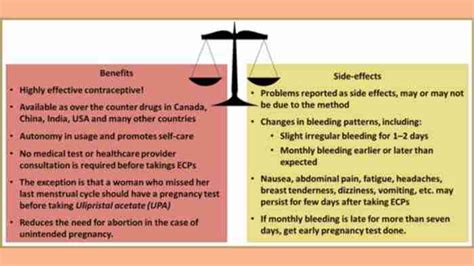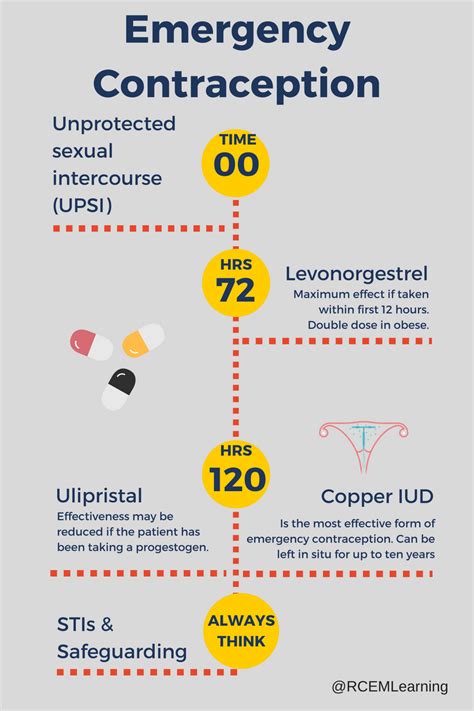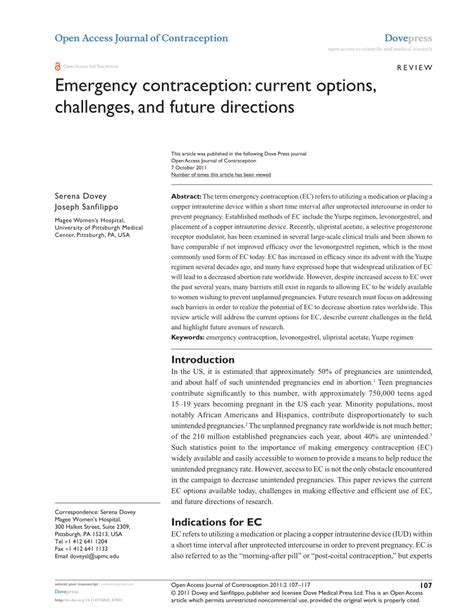Intro
Find emergency contraception near me, including morning-after pills and emergency birth control options, to prevent unintended pregnancy after unprotected sex, with nearby clinics and pharmacies offering convenient access to Plan B and other contraceptive methods.
Emergency contraception is a vital aspect of reproductive health, providing individuals with a safe and effective means to prevent unintended pregnancies after unprotected sex or contraceptive failure. The importance of emergency contraception cannot be overstated, as it offers a second chance to prevent pregnancy and avoid the potential physical and emotional consequences of an unplanned pregnancy. With the increasing awareness of reproductive health and the availability of various emergency contraception methods, it is essential to understand the options available and how to access them.
Emergency contraception is not only a matter of personal choice but also a public health concern, as unintended pregnancies can have significant social and economic implications. The ability to access emergency contraception near one's location can greatly impact an individual's ability to make informed decisions about their reproductive health. Moreover, emergency contraception has been a subject of controversy and misinformation, making it crucial to provide accurate and unbiased information to help individuals make informed decisions.
The need for emergency contraception can arise from various situations, including unprotected sex, condom failure, or missed contraceptive pills. In such situations, having access to emergency contraception near one's location can be a lifesaver, providing a sense of security and control over one's reproductive health. Furthermore, emergency contraception has been shown to be safe and effective when used correctly, making it an essential component of comprehensive reproductive health care.
Understanding Emergency Contraception

Emergency contraception, also known as the morning-after pill, is a type of birth control that can be used after unprotected sex or contraceptive failure to prevent pregnancy. There are several types of emergency contraception available, including levonorgestrel, ulipristal acetate, and copper intrauterine devices (IUDs). These methods work by delaying or preventing ovulation, fertilization, or implantation of a fertilized egg.
Types of Emergency Contraception
Emergency contraception methods can be categorized into two main types: hormonal and non-hormonal. Hormonal emergency contraception, such as levonorgestrel and ulipristal acetate, contains synthetic hormones that help prevent pregnancy. Non-hormonal emergency contraception, such as copper IUDs, works by creating an environment that is not conducive to fertilization or implantation.How to Access Emergency Contraception Near You

Accessing emergency contraception near one's location can be a straightforward process, thanks to the increasing availability of emergency contraception methods over-the-counter (OTC) and online. Individuals can visit their local pharmacy, health clinic, or online retailer to purchase emergency contraception. Some pharmacies and health clinics also offer same-day appointments or walk-in services for those who need emergency contraception urgently.
Online Resources
Online resources, such as websites and mobile apps, can also provide valuable information and support for individuals seeking emergency contraception. These resources can help individuals find emergency contraception near their location, learn about different types of emergency contraception, and access online consultations with healthcare providers.Benefits of Emergency Contraception

Emergency contraception offers several benefits, including the ability to prevent unintended pregnancies, reduce the risk of abortion, and provide a sense of control over one's reproductive health. Additionally, emergency contraception can help reduce the emotional and financial burden associated with unintended pregnancies.
Reducing Unintended Pregnancies
Emergency contraception can significantly reduce the number of unintended pregnancies, which can have a positive impact on public health and social welfare. By providing individuals with a safe and effective means to prevent pregnancy, emergency contraception can help reduce the number of abortions, teenage pregnancies, and unintended births.Common Misconceptions About Emergency Contraception

Despite the importance and effectiveness of emergency contraception, there are several common misconceptions surrounding its use. Some individuals believe that emergency contraception is an abortion pill, while others think that it can be used as a regular form of birth control. However, emergency contraception is designed to be used in emergency situations only and should not be used as a substitute for regular birth control.
Separating Fact from Fiction
It is essential to separate fact from fiction when it comes to emergency contraception. Emergency contraception is not an abortion pill, and it does not cause abortion. Instead, it works by preventing pregnancy from occurring in the first place. Additionally, emergency contraception is safe and effective when used correctly, and it can be used by individuals of all ages, including teenagers.Emergency Contraception and Reproductive Health

Emergency contraception is an essential component of comprehensive reproductive health care. By providing individuals with access to emergency contraception, healthcare providers can help promote reproductive health, reduce unintended pregnancies, and improve overall well-being.
Comprehensive Reproductive Health Care
Comprehensive reproductive health care includes a range of services, from routine check-ups and screenings to birth control and emergency contraception. By providing individuals with access to these services, healthcare providers can help promote reproductive health, reduce health disparities, and improve overall health outcomes.Future Directions for Emergency Contraception

The future of emergency contraception looks promising, with ongoing research and development aimed at improving the effectiveness, safety, and accessibility of emergency contraception methods. Some potential future directions for emergency contraception include the development of new hormonal and non-hormonal methods, improved online access and telemedicine services, and increased awareness and education about emergency contraception.
Expanding Access to Emergency Contraception
Expanding access to emergency contraception is critical to promoting reproductive health and reducing unintended pregnancies. This can be achieved through a range of strategies, including increasing the availability of emergency contraception over-the-counter and online, improving healthcare provider training and education, and reducing barriers to access, such as cost and stigma.Conclusion and Next Steps

In conclusion, emergency contraception is a vital component of comprehensive reproductive health care, providing individuals with a safe and effective means to prevent unintended pregnancies. By understanding the benefits and limitations of emergency contraception, individuals can make informed decisions about their reproductive health and well-being. The next steps for promoting emergency contraception include expanding access, improving awareness and education, and reducing barriers to access.
As we move forward, it is essential to prioritize reproductive health and well-being, ensuring that individuals have access to the resources and services they need to make informed decisions about their bodies and lives. By working together, we can promote a culture of reproductive health, reduce unintended pregnancies, and improve overall health outcomes.
We invite you to share your thoughts and experiences with emergency contraception in the comments below. If you have any questions or concerns, please do not hesitate to reach out. Together, we can promote reproductive health and well-being, one conversation at a time.
What is emergency contraception?
+Emergency contraception, also known as the morning-after pill, is a type of birth control that can be used after unprotected sex or contraceptive failure to prevent pregnancy.
How does emergency contraception work?
+Emergency contraception works by delaying or preventing ovulation, fertilization, or implantation of a fertilized egg.
Where can I access emergency contraception near me?
+Emergency contraception can be accessed at local pharmacies, health clinics, and online retailers. You can also use online resources to find emergency contraception near your location.
Is emergency contraception safe and effective?
+Yes, emergency contraception is safe and effective when used correctly. It can significantly reduce the risk of unintended pregnancy and is an essential component of comprehensive reproductive health care.
Can I use emergency contraception as a regular form of birth control?
+No, emergency contraception should not be used as a regular form of birth control. It is designed to be used in emergency situations only and should be used in conjunction with regular birth control methods.
